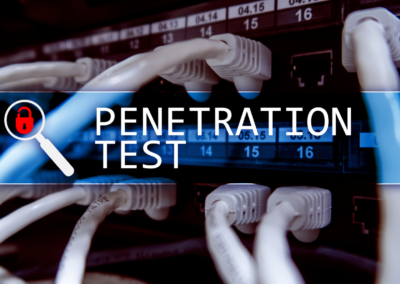In the realm of information security certifications, two prominent options that professionals often consider are GIAC (Global Information Assurance Certification) and CISSP (Certified Information Systems Security Professional). These certifications hold significant value and are sought after by individuals aspiring to excel in cybersecurity.
Here, we will explain and compare every aspect of GIAC vs. CISSP in detail to help you determine which certification might fit your career aspirations.
Understanding GIAC

GIAC, or Global Information Assurance Certification, is a certification program developed by the SANS Institute. It focuses on practical, real-world skills in various domains of information security. GIAC certifications cover many topics, including penetration testing, incident response, network defense, and secure software development.
GIAC exams are known for their technical depth and rigor, requiring candidates to possess hands-on experience and theoretical knowledge.
Exploring CISSP
CISSP, Certified Information Systems Security Professional, is a certification offered by (ISC)², a renowned nonprofit organization in cybersecurity. CISSP encompasses a broader scope, emphasizing the holistic understanding of information security principles and practices. It covers security and risk management, asset security, cryptography, and security architecture.
CISSP certification is recognized globally and signifies an individual’s commitment to protecting organizations from security threats.
Key Differences between GIAC vs. CISSP
While GIAC and CISSP certifications contribute to a strong cybersecurity career, they differ in several aspects. Here are some key differences to consider:
Certification Scope
GIAC certifications are known for their technical depth and specificity. They cover various specialized domains such as incident response, penetration testing, digital forensics, and network defense.
On the other hand, CISSP takes a broader approach, encompassing various aspects of information security management, including security architecture, access control, cryptography, and business continuity planning.
Certification Tracks
GIAC offers a diverse range of certification tracks, allowing professionals to specialize in specific areas of cybersecurity. Some popular GIAC certifications include GSEC (GIAC Security Essentials), GCIH (GIAC Certified Incident Handler), GCIA (GIAC Certified Intrusion Analyst), and GPEN (GIAC Certified Penetration Tester).
On the other hand, CISSP follows a single track covering a broad spectrum of information security topics.
Experience Requirements
GIAC certifications typically require candidates to demonstrate practical experience in their chosen domain.
CISSP, on the other hand, requires a minimum of five years of cumulative work experience in at least two or more domains.
Exam Structure
GIAC exams usually consist of multiple-choice questions and hands-on challenges, evaluating candidates’ technical proficiency.
CISSP, on the other hand, comprises multiple-choice and advanced innovative questions that assess a candidate’s conceptual understanding and application of security principles.
Benefits of GIAC Certification
Obtaining a GIAC certification offers several benefits for information security professionals:
- Validation of practical skills and knowledge in specific security domains.
- Enhanced career prospects and credibility in the industry.
- Access to an extensive network of professionals through the GIAC community.
- Ongoing professional development opportunities through SANS Institute training programs.
Advantages of CISSP Certification

CISSP certification provides numerous advantages to cybersecurity professionals:
- Comprehensive understanding of various domains in information security.
- Recognition as a trusted and experienced professional in the field.
- Broader career opportunities, including managerial and leadership roles.
- Access to exclusive resources and professional networking through (ISC)².
Factors to Consider when Choosing between GIAC vs. CISSP
When deciding between GIAC and CISSP certifications, it’s essential to consider the following factors:
- Career Path: Determine whether you wish to specialize in a specific technical domain (GIAC) or pursue a broader management-oriented role (CISSP).
- Experience: Assess your current work experience and evaluate whether you meet the prerequisites for each certification.
- Industry Recognition: Research the industry demand and recognition of each certification in your desired job market.
- Personal Goals: Align your certification choice with your long-term career goals and aspirations.
GIAC vs. CISSP: Industry Recognition
Both GIAC and CISSP certifications hold significant recognition in the cybersecurity industry. However, the level of recognition may vary depending on factors such as job location and specific industry requirements. It is advisable to research the demand for each certification in your target industry and consult professionals to gain insights into their experiences.
Cost and Exam Difficulty Comparison
GIAC and CISSP certifications differ in terms of cost and exam difficulty. GIAC exams tend to be more technically challenging and may require specific training courses, which can increase the overall cost. CISSP certification has a higher exam fee but offers a broader range of study resources and preparation materials.
Continuing Education Requirements
GIAC and CISSP certifications require professionals to fulfill continuing education requirements to maintain their certification status. These requirements ensure that certified individuals stay up-to-date with the latest advancements and trends in information security.
Job Opportunities and Career Growth
Job opportunities for GIAC and CISSP-certified professionals are vast and varied. GIAC certifications often lead to specialized technical roles such as penetration tester, incident responder, or network defender. CISSP certification opens doors to managerial positions, security consultant roles, and risk management and governance opportunities.
How to Prepare for GIAC Certification
Preparing for a GIAC certification requires hands-on experience, self-study, and training. Here are some steps to help you in your preparation:
- Identify the specific GIAC certification you wish to pursue.
- Review the certification objectives and exam requirements.
- Enroll in relevant training courses or participate in hands-on workshops.
- Utilize official study materials, practice exams, and supplementary resources.
- Gain practical experience in the specific domain through real-world projects and exercises.
- Practice sample questions and attempt mock exams to assess your readiness.
How to Prepare for CISSP Certification

To prepare for CISSP certification, follow these steps:
- Familiarize yourself with the eight CISSP domains and their respective weightage.
- Identify your knowledge gaps and create a study plan accordingly.
- Use official study guides, recommended books, and online resources for comprehensive coverage.
- Join study groups or discuss with professionals to gain insights and perspectives.
- Solve practice questions and attempt simulated exams to assess your understanding.
- Consider attending CISSP training courses to reinforce your knowledge and exam readiness.
Conclusion
The comparison between GIAC vs. CISSP certifications reveals that both are highly regarded credentials in the field of cybersecurity. While GIAC focuses on practical skills and knowledge through its hands-on approach and specialized certifications, CISSP offers a broader understanding of various domains within cybersecurity. The choice between GIAC and CISSP ultimately depends on individual career goals, preferences, and the specific requirements of the job market.
However, when considering the next steps in advancing one’s cybersecurity career, it is crucial to seek the guidance and expertise of a reputable cybersecurity firm. One such firm worth exploring is NextDoorSec.






0 Comments